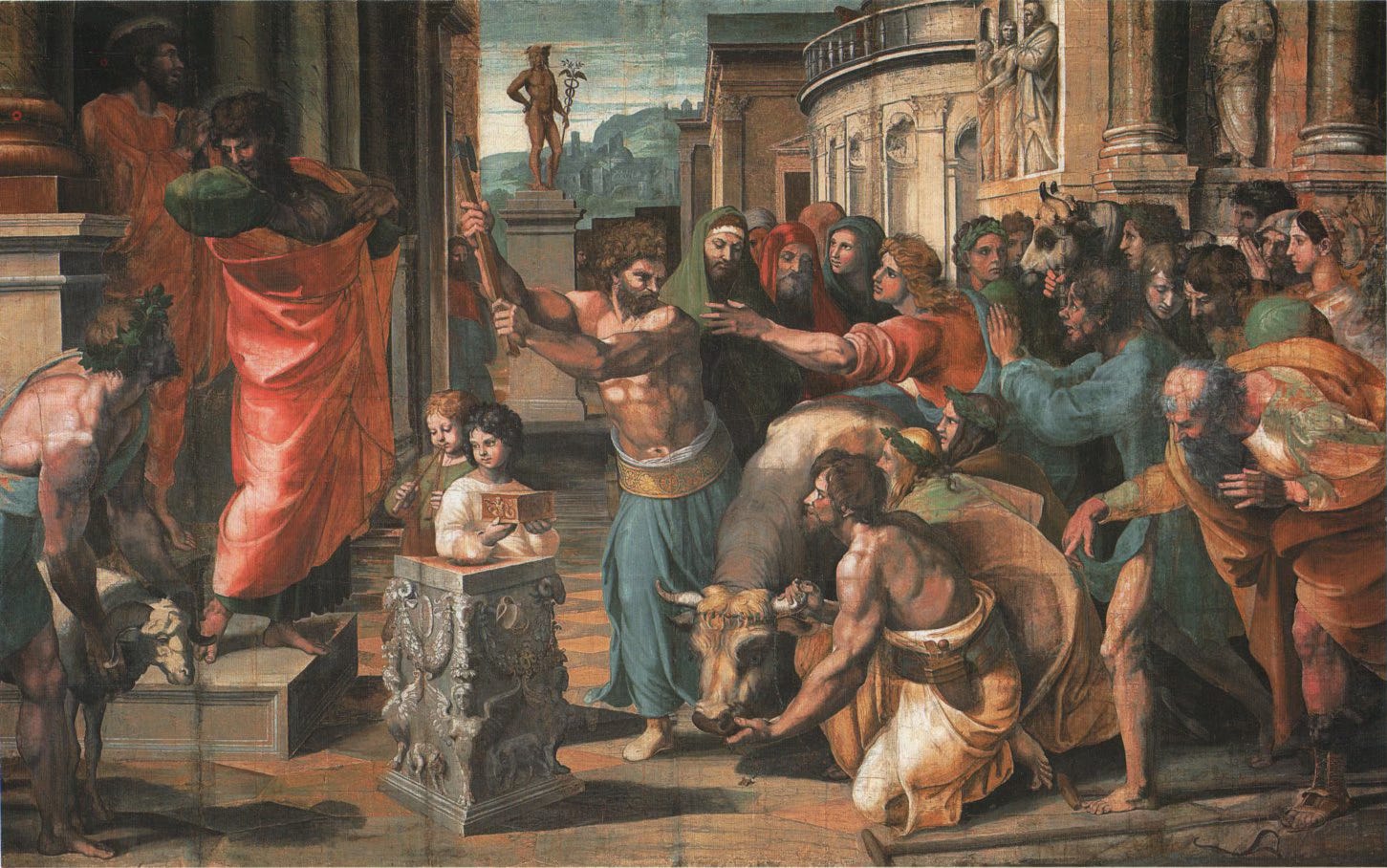
And after the meeting of the synagogue broke up, many Jews and devout converts to Judaism followed Paul and Barnabas, who, as they spoke with them, urged them to continue in the grace of God. (Acts 13:43)
St. Barnabas, a Levite from Cyprus who sold some land and gave the proceeds to the early Christian community in Jerusalem, was one of the twelve Apostles and a cousin of John Mark. He was prominent amongst the disciples in Jerusalem and accompanied Paul on his missionary journeys. He defended the Gentile converts against the rabid Judaizers, and together they made many converts. Paul and Barnabas, who are among the chief evangelists in the New Testament, successfully converted the “God-fearing” Gentiles who attended synagogues in various Hellenized cities.
Barnabas was sent by the Jerusalem Church to oversee the developing Church in Antioch. During his mission, he went to Tarsus and brought Paul back to Antioch to assist him. This same church in Antioch commissioned and sent Barnabas and Paul on their first missionary journey, where they spread the Gospel in Cyprus.
From Cyprus they journeyed to Antioch, where they related the prophesies and Psalms of the Old Testament to the Christian faith and the Resurrected Lord. Then they journeyed to Iconium, and then to Lystra. There, Paul healed a lame man, a miracle for which the people desired to offer oxen as a sacrifice. Paul and Barnabas urged them not to make sacrifices to them, whom the crowds supposed to be gods—Barnabas Zeus, and Paul Hermes—and rather point them to the Creator and sustainer of all things.
Though close friends and successful evangelists, Paul and Barnabas disagreed about bringing John Mark along on their second missionary journey. Barnabas took Mark, and Paul took Silas. 1 Corinthians 9:6 indicates that Barnabas was known to the Church in Corinth. Later, Barnabas and Paul reconciled, along with John Mark, which serves as an example of godly reconciliation in the Church.
Little else is known about Barnabas, but tradition holds that Barnabas was stoned in Cyprus as a martyr for the Gospel. He serves as a faithful example for the Church today, having served the Gentiles in various lands and converting them to the Christian faith. In a sermon given in 2008 on the Feast of St. Barnabas, Rev. Thomas Messer said the following of Barnabas:
St. Barnabas, then, would not compromise that Gospel in the tiniest detail for the sake of peace between men, for prosperity, or even for the shallow vanity that such a sell-out might be beneficial, in that it would give him more opportunities to preach and improve the Church's reputation in the world. Perhaps it would have. But that would have meant laying down the foolishness of God for the wisdom of man, and that is the way of death. St. Barnabas' painful zeal caused him much suffering, but it also delivered him to the Church triumphant and made him a hero of the faith. For the message he preached, the forgiving love of God in Christ, the power of Jesus' death and resurrection to make men sons of God, righteous, and free, was also for him. It is also for you. The kingdom of heaven is here.1
Almighty God, Your faithful servant Barnabas sought not his own renown but gave generously of his life and substance for the encouragement of the apostles and their ministry. Grant that we may follow his example in lives given to charity and the proclamation of the Gospel; through Your Son, Jesus Christ, our Lord, who lives and reigns with You and the Holy Spirit, one God, now and forever. Amen.




Good stuff!